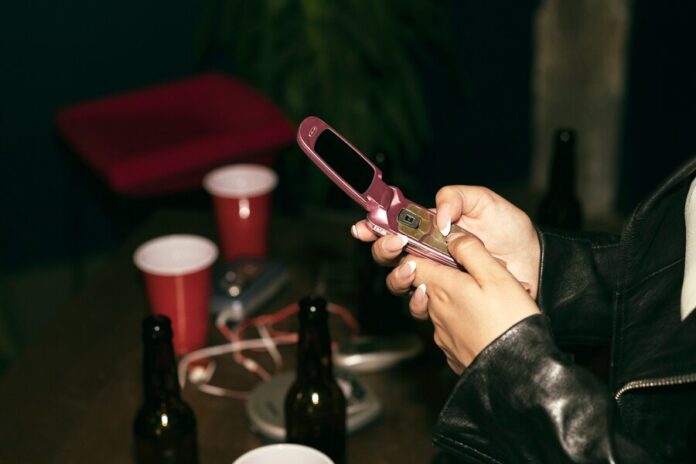Whether you’re camping deep in the wilderness, navigating your way home in low light, or simply adding to your impressive EDC (Everyday Carry) toolbox, the Klarus XG1GT flashlight is an exceptional tool. Renowned for its power, reliability, and rechargeable convenience, this flashlight is a favorite among outdoor enthusiasts, tech aficionados, and the EDC community alike.
One of the major selling points of the Klarus XG1GT is its rechargeable functionality. But a question we often hear is, “How long does it take the Klarus XG1GT to charge?” This post dives into everything you need to know about the flashlight, its key features, and exactly what affects the charging time.
Key Features of the Klarus XG1GT
Before discussing charging time, let’s explore what makes the Klarus XG1GT stand out from the crowd.
1. Superior Durability
Built to withstand rugged conditions, the Klarus XG1GT boasts a durable aluminum alloy body that is both impact-resistant and waterproof (IP68 rating). That makes it perfect for harsh outdoor environments.
2. Exceptional Brightness Options
The Klarus XG1GT packs some serious lumens. With a maximum brightness of around 2,000 lumens, this flashlight can illuminate objects hundreds of meters away. It offers multiple brightness modes, including strobe and SOS, catering to a variety of needs.
3. Long Battery Life
Thanks to its high-capacity 5000mAh rechargeable battery, the Klarus XG1GT delivers extended performance, lasting several hours on lower brightness modes.
4. Rechargeable Convenience
Unlike conventional flashlights that require disposable batteries, the Klarus XG1GT is USB-rechargeable. This makes it eco-friendly and incredibly convenient for prolonged outdoor use or emergency preparedness.
How Long Does It Take the Klarus XG1GT to Charge?
The charging time of the Klarus XG1GT varies, typically ranging between 4 to 5 hours for a full charge. However, this can be influenced by several factors, including the battery’s capacity, charging method, and power source. Here’s a more detailed look into those components.
Battery Capacity
The Klarus XG1GT is equipped with a powerful 5000mAh 21700 lithium-ion battery. While this large capacity ensures impressive runtime, it also means that it takes longer to fully charge compared to flashlights with smaller batteries.
Charging Method
The Klarus XG1GT supports USB Type-C fast charging, which is a major advantage. Using the included USB-C cable, the flashlight charges faster compared to older micro-USB-powered models. Additionally, USB-C connectors are more durable and reversible, making charging hassle-free.
Power Source
The type of charging source you use also affects charging time. Here’s a quick breakdown:
- Wall Adapters (10W or higher): Provides the fastest charging time, typically around 4–4.5 hours.
- Power Banks (5W–10W): Charging time ranges between 4.5 to 5 hours, depending on the power output of the bank.
- Laptop or Computer USB Ports: These provide lower power output and can take 5 hours or longer to fully charge the flashlight.
Residual Battery Level
If the flashlight battery isn’t completely drained before recharging, it will take less time to reach a full charge.
Comparing Charging Times with Similar Flashlights
How does the Klarus XG1GT’s charging time stack up against its competitors?
|
Flashlight Model |
Battery Capacity |
Charging Time |
Charging Method |
|---|---|---|---|
|
Klarus XG1GT |
5000mAh |
~4–5 hours |
USB-C |
|
Olight Seeker 3 Pro |
21700 5000mAh |
~5 hours |
USB magnetic |
|
Fenix PD36R |
5000mAh |
~4 hours |
USB-C |
As the table illustrates, the Klarus XG1GT holds its own in the competitive rechargeable flashlight market. Its 4–5 hour charging time is on par with similar models, but its USB-C compatibility gives it a modern edge, ensuring quicker and more reliable recharges.
Tips for Optimizing Charging Time
Want to make the most of your Klarus XG1GT? Follow these tips to optimize the flashlight’s charging time and battery health.
Use Fast-Charging Wall Adapters
Whenever possible, use a USB-C wall adapter with a minimum of 10W output. This significantly speeds up the charging process compared to lower-power options.
Avoid Draining the Battery Completely
Lithium-ion batteries, like the one in the Klarus XG1GT, perform best when you recharge them before they completely run out of power. Frequent deep discharges can shorten the battery lifespan.
Opt for High-Quality Cables
Not all USB-C cables are created equal. A high-quality, fast-charging USB-C cable ensures steady and efficient power transfer.
Charge in Moderate Conditions
For optimal performance, always charge your flashlight in a cool, dry environment. Exposure to extreme temperatures can affect charging times and battery health.
Keep the Charging Port Clean
Dust and debris can accumulate in the USB-C port, slowing down charging efficiency. Use a small brush or compressed air to keep it clean.
Regularly Inspect Battery Health
Check for signs of wear and tear in the battery over time. If you notice reduced performance or prolonged charging times, it may be time to replace the battery.
The Bottom Line
Understanding how long it takes the Klarus XG1GT to charge and what factors influence this process is critical for maximizing its performance. With a typical charging time of 4 to 5 hours, this flashlight is both efficient and practical for outdoor enthusiasts, EDC fans, and tech geeks alike.
For its USB-C fast charging, robust battery life, and high-lumen performance, the Klarus XG1GT stands as a stellar choice in the rechargeable flashlight market.


